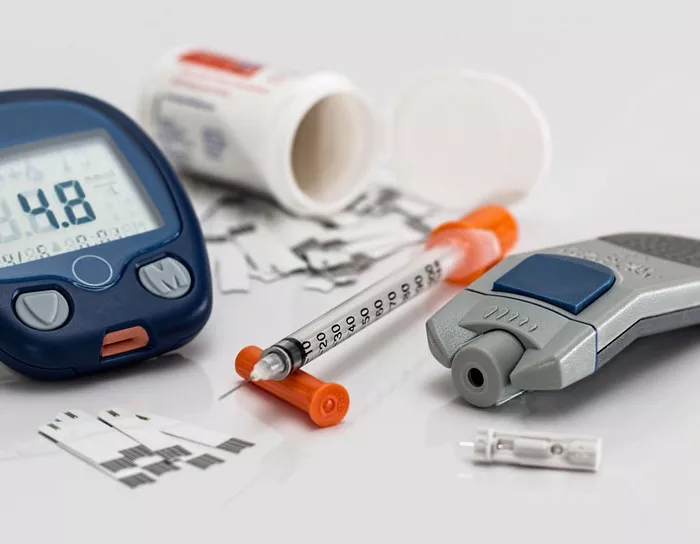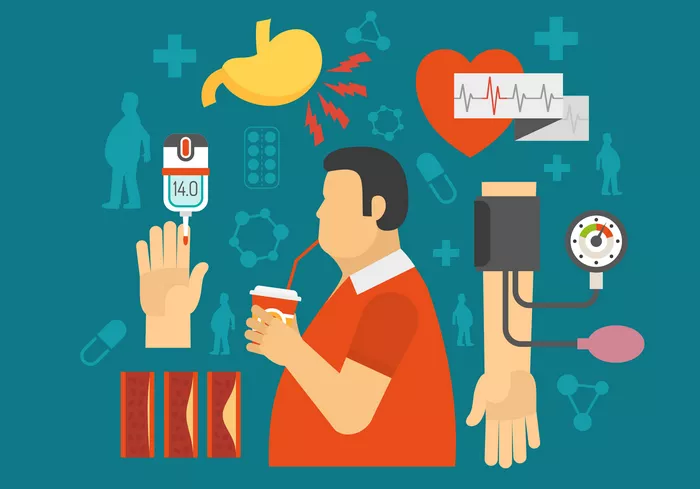Oral diabetes medications play a crucial role in the management of Type 2 diabetes, a condition characterized by insulin resistance or impaired insulin production. These medications help control blood sugar levels by various mechanisms, offering patients a convenient and effective way to manage their condition without the need for injections. Understanding the different types of oral diabetes medications and their respective benefits and side effects is essential for optimizing treatment outcomes and improving overall health.
Types of Oral Medications
There are several classes of oral diabetes medications, each with unique mechanisms of action:
Biguanides (e.g., Metformin): Biguanides work by decreasing the amount of glucose produced by the liver and improving insulin sensitivity in peripheral tissues.
Sulfonylureas (e.g., Glipizide, Glimepiride): Sulfonylureas stimulate insulin secretion from pancreatic beta cells, helping to lower blood sugar levels.
DPP-4 Inhibitors (e.g., Sitagliptin, Saxagliptin): DPP-4 inhibitors increase insulin secretion and decrease glucagon production, leading to lower blood sugar levels.
SGLT2 Inhibitors (e.g., Canagliflozin, Dapagliflozin): SGLT2 inhibitors block the reabsorption of glucose in the kidneys, causing excess glucose to be excreted in the urine.
Effectiveness
Each class of oral diabetes medication has demonstrated efficacy in lowering blood sugar levels and improving glycemic control. Metformin, for example, is often recommended as the first-line treatment for Type 2 diabetes due to its proven efficacy, safety profile, and low cost. Sulfonylureas are also effective in lowering blood sugar levels but may cause weight gain and hypoglycemia in some individuals. DPP-4 inhibitors and SGLT2 inhibitors offer additional options for patients who may not achieve adequate blood sugar control with other medications.
Side Effects
Common side effects associated with oral diabetes medications vary depending on the class of medication:
Biguanides (Metformin) may cause gastrointestinal symptoms such as nausea, diarrhea, and abdominal discomfort.
Sulfonylureas may increase the risk of hypoglycemia (low blood sugar) and weight gain.
DPP-4 inhibitors may cause headache, upper respiratory tract infections, and joint pain.
SGLT2 inhibitors may increase the risk of urinary tract infections, genital yeast infections, and dehydration.
Oral diabetes medications are typically taken once or twice daily, with or without food, as prescribed by healthcare providers. The dosage may be adjusted based on individual factors such as age, weight, kidney function, and other medical conditions. It is important for patients to follow the prescribed dosage and administration instructions to achieve optimal treatment outcomes.
Comparative Analysis
In comparing oral diabetes medications, several factors should be considered, including:
Effectiveness in lowering blood sugar levels and achieving glycemic control.
Side effects and tolerability.
Cost and affordability.
Patient preference and convenience of administration.
Patient Considerations
When selecting oral diabetes medications, healthcare providers consider various factors such as:
Age: Older adults may have different medication needs and considerations compared to younger individuals.
Weight: Some medications may be associated with weight gain, while others may promote weight loss.
Other Health Conditions: Patients with comorbidities such as cardiovascular disease or kidney impairment may require specific medications or dose adjustments.
Expert Recommendations
Medical experts recommend individualized treatment plans based on patient-specific factors and treatment goals. According to Dr. Emily Smith, an endocrinologist at the Diabetes Institute, “Choosing the right oral diabetes medication requires careful consideration of the patient’s clinical characteristics, preferences, and potential side effects. Healthcare providers play a crucial role in guiding patients through this process and optimizing treatment outcomes.”
FAQ Section
Are oral diabetes medications safe to use during pregnancy?
Some medications, such as metformin, may be considered safe for use during pregnancy, while others may pose risks to the fetus. It is essential for pregnant women with diabetes to consult with their healthcare providers to determine the safest treatment options.
Can oral diabetes medications be used in combination with insulin therapy?
Yes, oral diabetes medications can be used in combination with insulin therapy to achieve optimal blood sugar control. Healthcare providers may adjust dosages and treatment regimens based on individual patient needs.
Do oral diabetes medications cure Type 2 diabetes?
Oral diabetes medications help manage blood sugar levels and improve glycemic control, but they do not cure Type 2 diabetes. Lifestyle modifications such as healthy eating, regular exercise, and weight management are essential components of diabetes management.
Conclusion
In conclusion, oral diabetes medications play a vital role in managing Type 2 diabetes and achieving glycemic control. By understanding the different classes of medications, their mechanisms of action, side effects, and patient considerations, individuals with diabetes can work with their healthcare providers to develop personalized treatment plans that meet their needs and improve their quality of life. It is essential for patients to consult with their healthcare providers before starting any new medication and to actively participate in their diabetes management for optimal outcomes.
Related Topics:
What Fruit Can I Eat With Diabetes Type 2?

























